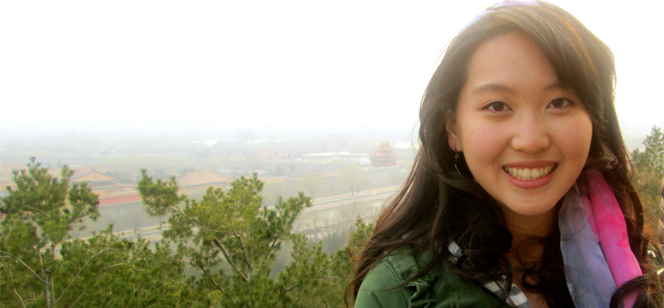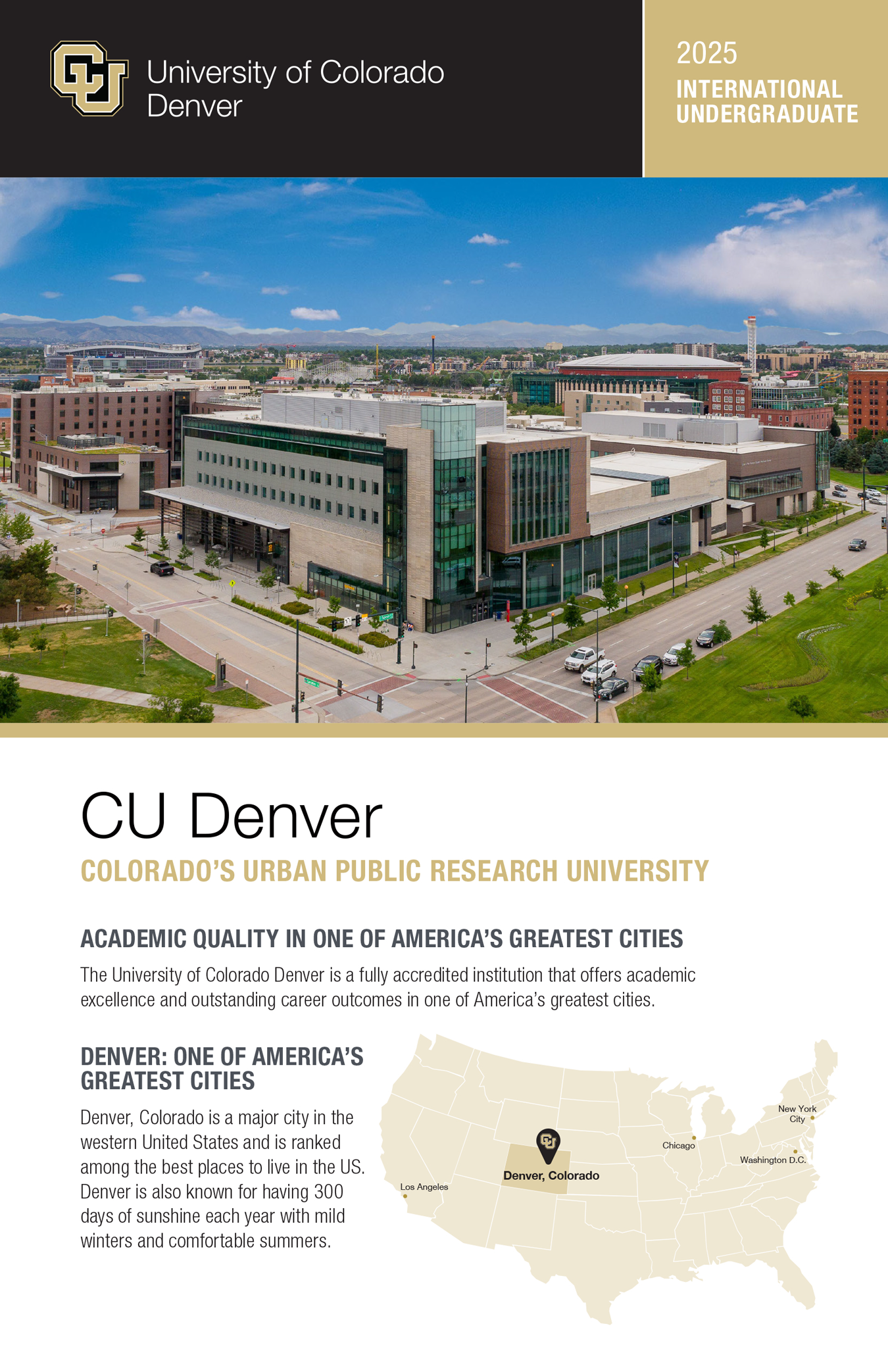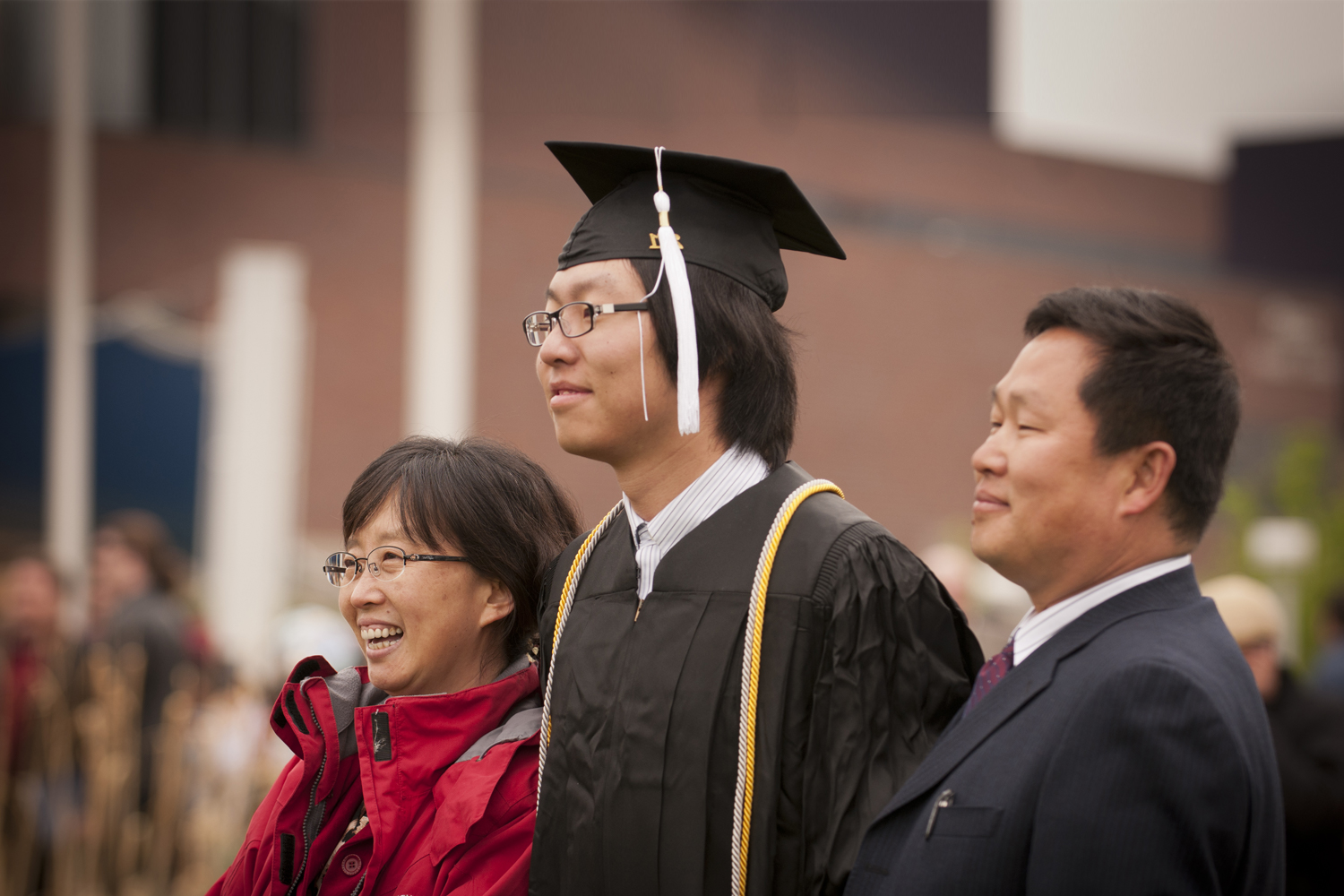Taking The Leap
Semester in Beijing Program Expands Chinese-American Student’s Education
May 24, 2013
Amy Ng, earning BA in English Literature
College of Liberal Arts & Sciences
How did you originally hear about the Semester in Beijing Program, and what made you pursue this study abroad program?
I had wanted to study abroad in China for a very long time, and when I saw the University of Colorado Denver Semester in Beijing program, I took a leap. The scholarship opportunities offered in the program were another major reason why I chose it. I had looked into other programs, but the cost of this one compared to the others was significantly more economic for me. This program had the combination of what I had already wanted to do and the opportunity to do it—that’s why I am in Beijing right now.
What is your major, and how do you feel that your experience studying at a University in China will enhance your academic career as a whole at CU Denver?
As a creative writing major, going to China allowed me to find inspiration from the experiences of a new country. I knew even before I left The States that I would find amazing stories to tell in this ancient nation. But I’m not in China only to find a good novel, but also to discover a piece of myself.
Because of my own personal heritage ties to the country, I really felt that going to my family’s country of origin would help me grow as a person. This provided true. Going to China really opened my eyes to a whole different perspective. Not only did I find cultural growth during my stay in China, but I also experienced a personal growth because it is my first time staying out on my own.
Being in a foreign yet familiar country taught me that I belong to two nations, and that I am capable of independence and taking care of myself.
Did you receive any scholarship aid to help fund your semester in China? If so, which scholarship(s) did you receive?
I received two scholarships: The Benjamin A. Gilman International Scholarship and the Semester in Beijing Scholarship offered at CU Denver. For the follow-up project, I am preparing a blog, with fictional stories inspired by my experience in China as well as anecdotal stories. I have also talked to Asian Avenue magazine about publishing a work in one of their issues.
Once in China, what kind of culture shock or surprises did you experience?
Because I grew up surrounded by Chinese culture, I didn’t really experience culture shock in the way many of my fellow American students did. Most of the food was familiar to me, and I was able to communicate with the locals. The biggest surprise was observing how relationships between people blossom in China. Also, the Chinese sense of personal space is a little different than in America.
How were you able to assimilate and integrate into the Chinese culture in Beijing, during your semester? (For example, did you practice your Mandarin with locals? Where you able to participate in cultural activities or events? Did you learn to cook Chinese dishes? What Chinese cultural elements did you incorporate into your daily life? etc.)
Because I was fluent in the language before I came, and because I look and act a lot like a native Chinese person, I had no problems integrating into the culture here. When I went out shopping, the store clerks would even ask me what Chinese province I was from, not suspecting that I am an American. Even though they could tell I wasn’t from Beijing, they assumed that I was a Chinese national. It’s always interesting to hear them tell me how fluent my English is.
Describe what a typical day was like for you as a student, living and studying in Beijing:
Living in Beijing is surprisingly similar to living in the States. I go out with friends on the weekends, and still have classes and homework. I even stay up late watching youtube™ until 1:00 or 2:00 in the morning. Because my classes are all taught in English by CU Denver professors, it’s really just like taking a course in Denver, except that I speak more Chinese with my classmates.
Describe in detail your favorite excursion or experience you had, during your semester abroad:
My favorite excursion so far is a trip to TianJin with a Chinese friend. We took a 30 minute bullet train ride and we stayed there for two nights and three days. Our hotel was right next the famous Ferris wheel which lit up every night and reflected in the river. Every night when we went back to the hotel, we would see it moving slowly but surely with an unimaginable amount of people going around in circles, lighting up the whole area.
We also went to an area that was heavily influenced by Italy, and I just call it “the little Italy in China”. It was really beautiful with live music on several different streets and the whole place lit up with subtle colors and designs. It was my favorite spot on the whole excursion.
Compare and contrast a few elements of Chinese culture vs. American culture that you have noticed during your time abroad.
One of the most prominent differences I have noticed between American and Chinese culture is the way people interact with one another. It might be because I am a foreigner and so they treat me differently, but I find that the people here are very friendly and easy to talk to. I am usually a very shy person and I generally find it difficult to make friends immediately. But in China, I was able to communicate a lot easier with other people, mostly because they were open with me to begin with. There are so many similarities that I see between the American and Chinese culture, but it might also be because I grew up in a mixed culture.
After being in China for a few months, why do you think it is valuable and important for American students to experience this culture by studying abroad?
The most important thing to understand abroad is that China and the U.S. are not that different from each other. Yes, the food is very different, the language a complete mystery, and reading is annoyingly hard, but the differences aren’t so vast. Many people think of China as a nation that is not as developed as the States, but I find that completely untrue. I find myself thinking more and more that it isn’t fair to compare any two nations against each other. There will always be differences and similarities, but maybe it’s better to enjoy each nation separately and understand each country as its own entity.
How would you recommend the Semester in Beijing Program to other CU Denver students once you have returned?
I would strongly recommend the program to other students. Perhaps after hearing about my own wonderful experiences in the “old country”, other people would want to visit China as well. Studying in China is considered a “non-traditional” country to be abroad in, and I hope that will change in the near future. The stories that are hidden in this nation are countless and more people should jump at the chance to find them.






